| Immigrants Deported, by U.S. Hospitals |
|
|
|
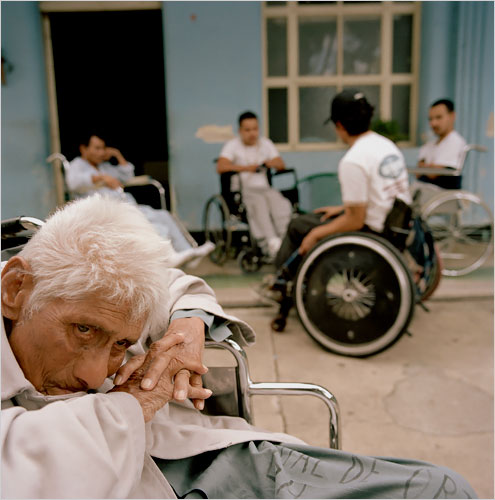 |
| Although the National Hospital of Orthopedics and
Rehabilitation is the only public rehabilitation hospital in Guatemala, it
dedicates just 32 beds to rehabilitation and does not offer the specialized
brain injury treatment that Mr. Jiménez needed. Photo: Josh Haner/The New
York Times |
|
|
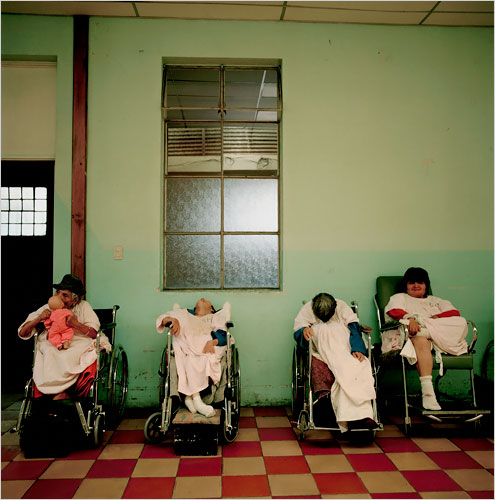 |
| Half the hospital is devoted to orthopedic care and the
other half serves as an "asylum" for profoundly disabled Guatemalans. A few
weeks after he was brought there from Florida, the hospital discharged Mr.
Jiménez, transferring him to a public acute-care hospital, where his brother
found him "lying in the hallway on a stretcher, covered in his own
excrement." Photo: Josh Haner/The New York Times |
|
|
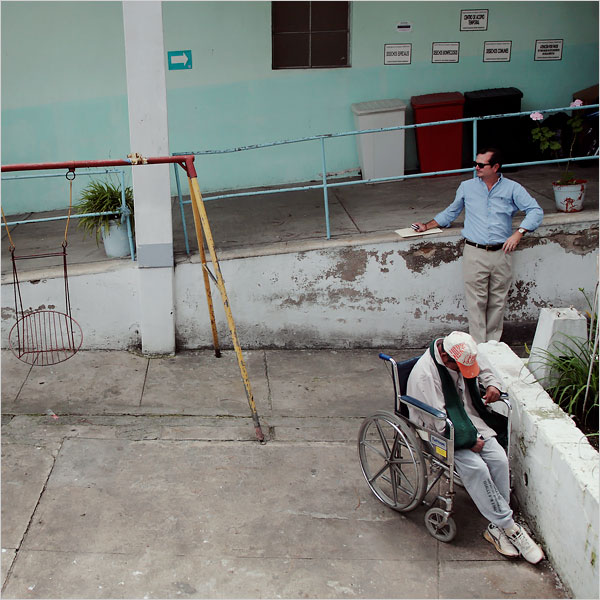 |
| Michael R. Banks, an estate-planning lawyer who represented
Mr. Jiménez in Florida, recently visited the National Hospital of
Orthopedics and Rehabilitation in Guatemala City on his way to meet with Mr.
Jiménez, who ended up with his elderly mother in a remote mountain village.
Photo: Josh Haner/The New York Times |
|
|
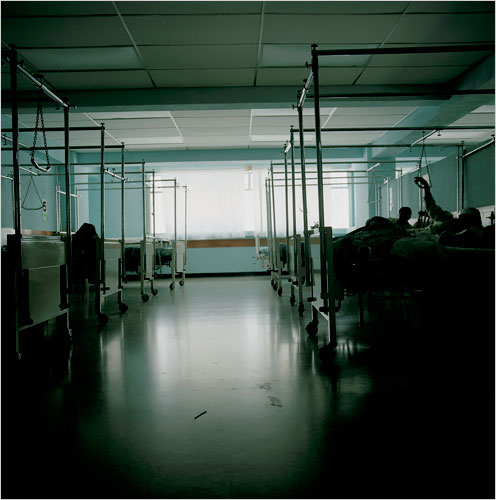 |
| Diana Gregory, the nurse from Martin Memorial who
accompanied Mr. Jiménez back to Guatemala, said that she was impressed by
the hospital she left him at in Guatemala City. "Their equipment looks like
it could have been donated to the Smithsonian but it was functioning
equipment and they used it," she said, adding: "That facility could have
taken care of me any day." Photo: Josh Haner/The New York Times |
|
|
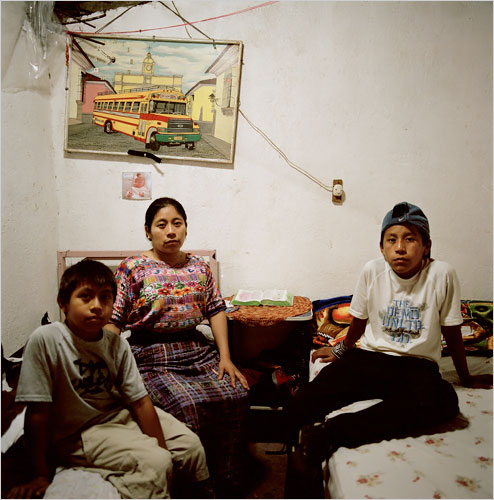 |
| After Mr. Jiménez arrived, the Guatemalan hospital
contacted his common-law wife, Fabiana Domingo Laureano, who lived in
Antigua, Guatemala, with their two young sons, and asked her to come get
him. Ms. Domingo, who was 27 at the time, was shocked to learn that her
husband was back and terrified by the request. Then as now, she was eking
out a living, selling traditional woven clothing in the municipal
marketplace while sharing a spare, concrete room with her sons in her
parents' humble home. "I was already living from hand to mouth," she said.
"How could I possibly have given him what he needs?" Photo: Josh Haner/The
New York Times |
|
|
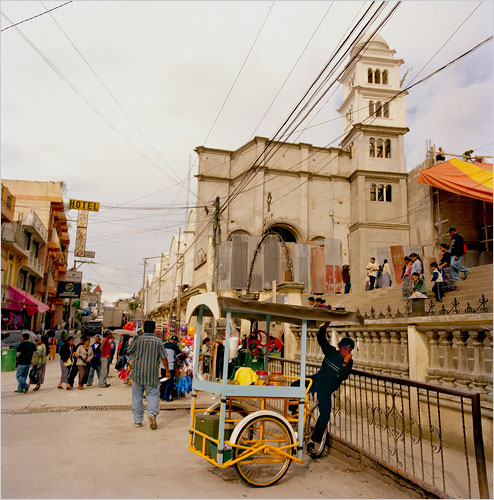 |
| With no other options, Mr. Jiménez's family brought him
back to his home, outside the provincial city of Soloma. No medical care for
his condition is available. Photo: Josh Haner/The New York Times |
|
|
|
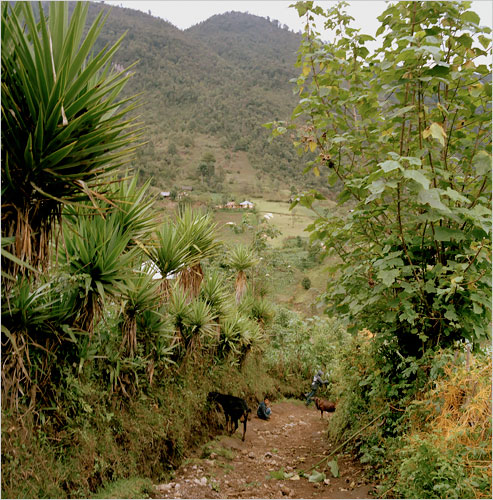 |
| From Soloma, the road to Mr. Jiménez's hamlet only goes so
far, and the trip must be completed on foot, up and down a rutted dirt path
through goat-strewn meadows. Photo: Josh Haner/The New York Times |
|
|
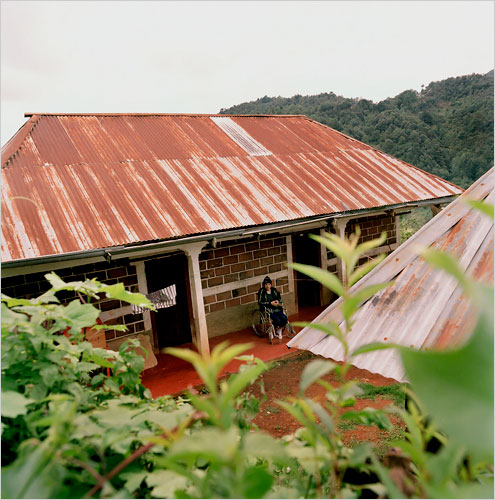 |
| The New York Times took the trek to visit him in late
June, Mr. Jiménez had not budged from his hilltop home since
returning there and no medical professional had visited him, either.
With his mother too frail to move him into his wheelchair, his life
had shrunken to the confines of his bed, across from his mother's.
Only the presence of visitors, who could help him into his
wheelchair, gave Mr. Jiménez a rare chance to get out of bed. Photo:
Josh Haner/The New York Times |
|
|
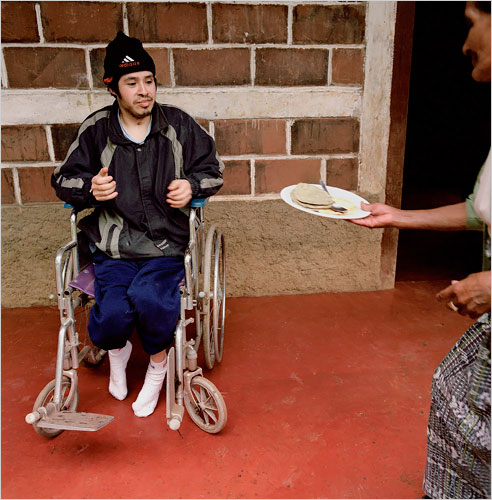 |
| Since being hoisted in his wheelchair up a steep slope to his
remote home, Mr. Jiménez, who suffered a severe traumatic brain
injury, has received no medical care or medication -- just Alka
Seltzer and prayer, his 72-year-old mother, Petrona Gervacio Gaspar,
said. Photo: Josh Haner/The New York Times |
|
|
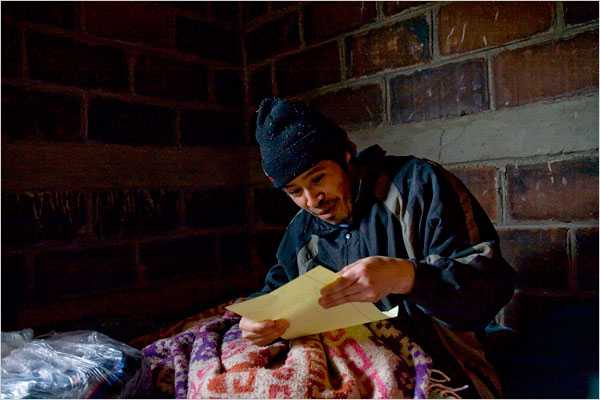 |
| To the surprise of his visitors, Mr. Jiménez, despite
his background and brain injury, was able, and eager, to
read a letter from his cousins in Florida. At first, Mr.
Jiménez read haltingly, then more fluidly. Later, when all
his visitors had gone outside, he picked up the letter and
read the ending aloud again to himself, softly. "I want to
tell you," he read, "that we miss you and love you. May God
continue to bless you." Mr. Jiménez smiled, and repeated,
"May God continue to bless you." Photo: Josh Haner/The New
York Times
|
|
|
|
|
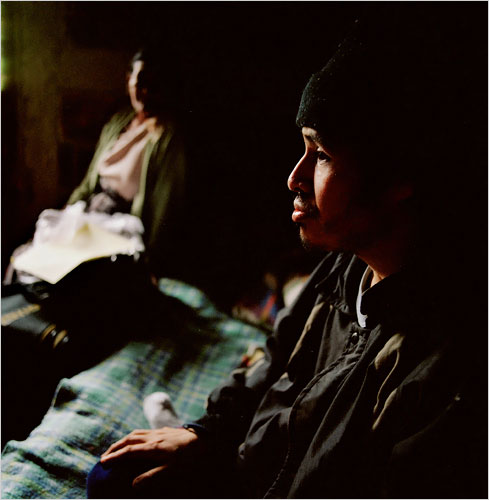 |
| With no access to medical care, Mr. Jiménez has suffered since
returning home. Over the last year, his condition has deteriorated
with routine and violent seizures, characterized by falls,
protracted convulsions, a loud gurgling in the throat, the vomiting
of blood and, finally, a collapse into unconsciousness. "Each time
he loses a little more of himself," his mother said. Photo: Josh
Haner/The New York Times |
|
|
|










